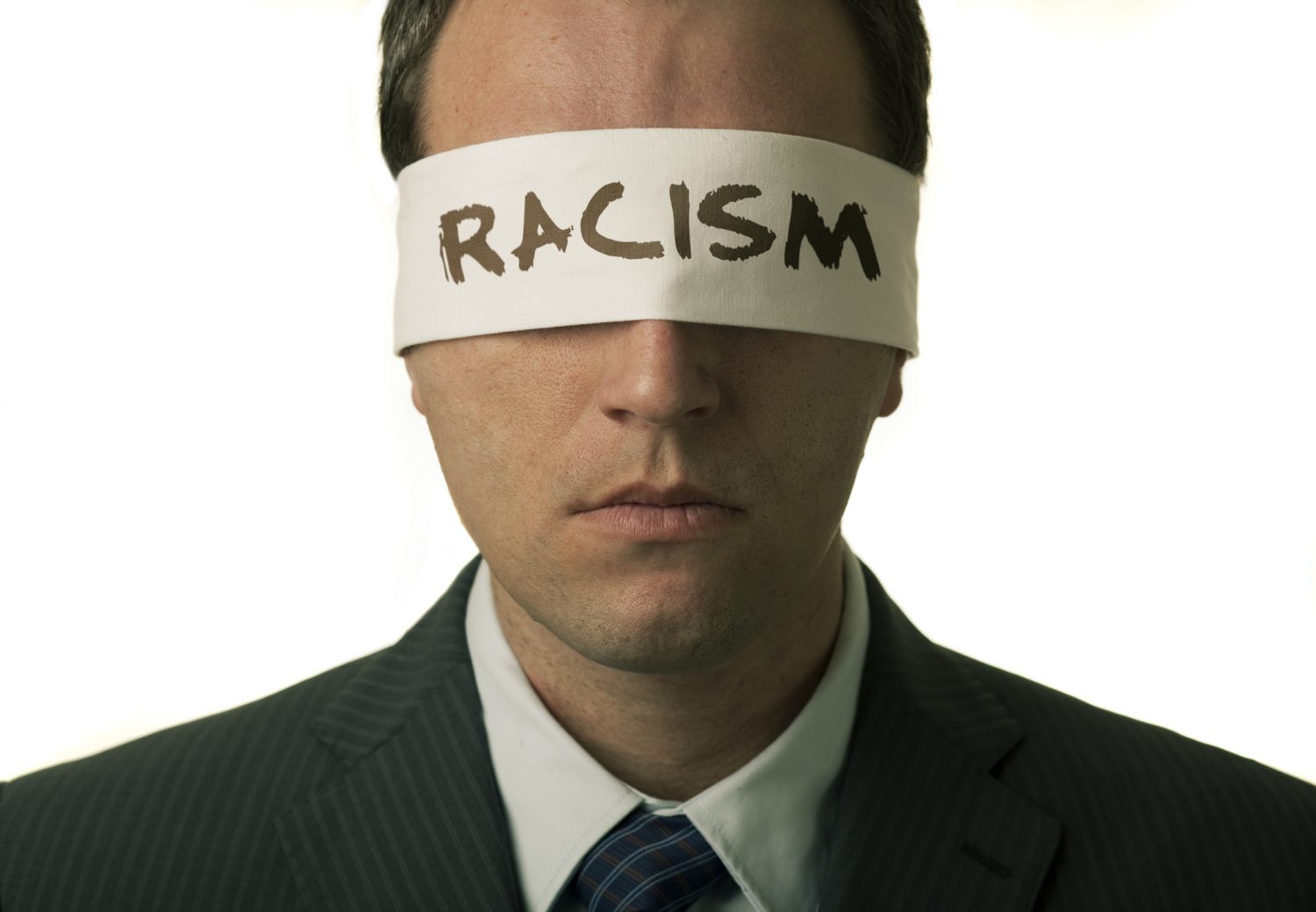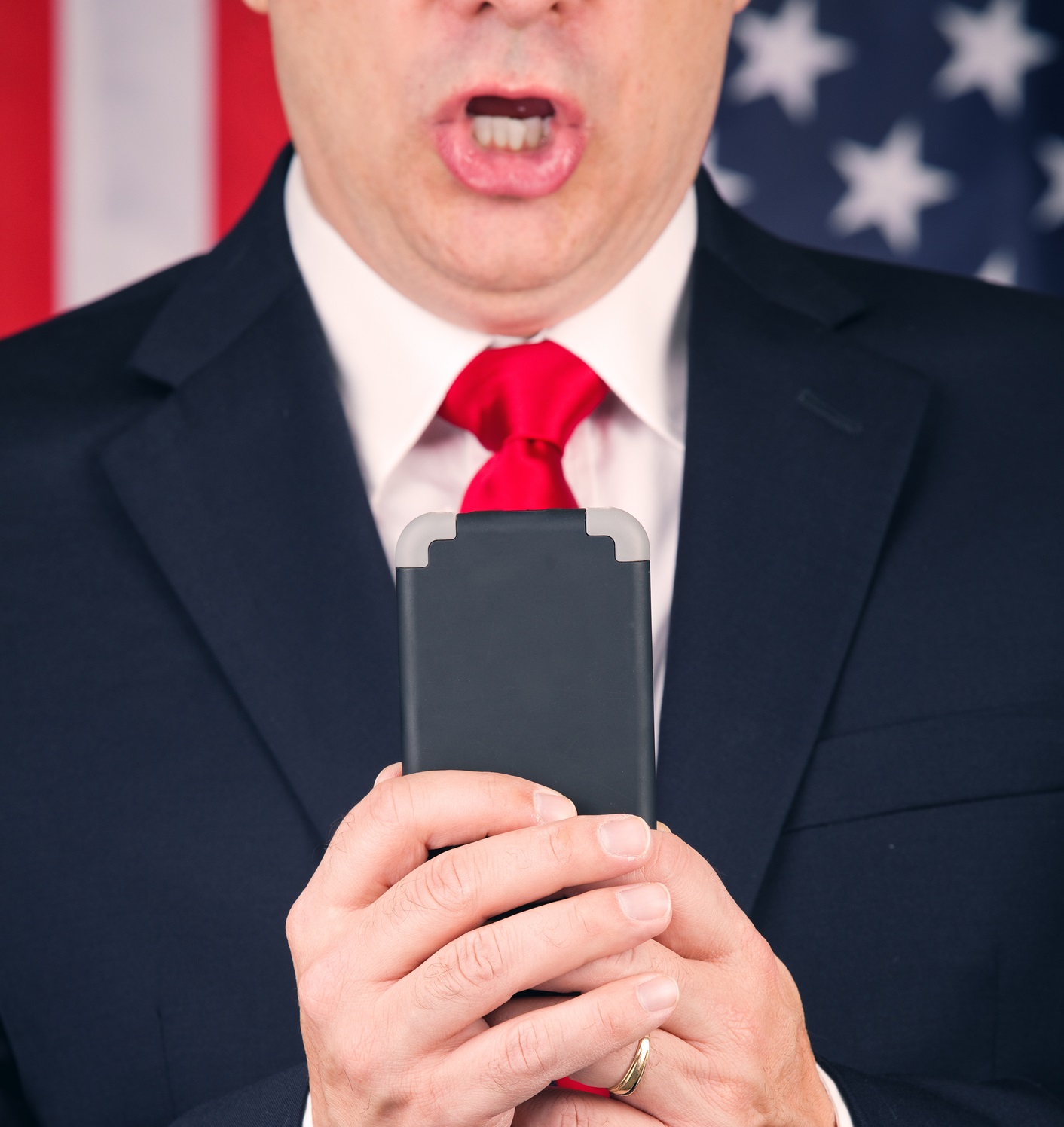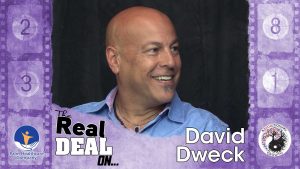by staff | Aug 22, 2017 | Addiction, Drug Abuse, Drug Policy, Law Enforcement, Stigma

In the wake of all the turmoil created by the white nationalist rallies in Charlottesville, Virginia this month the conversation on oppression, cultural tension and systematic racism has become unavoidable. With counter-protesters in large numbers present to oppose the white nationalist factions, violence eventually erupted. In the end there were 3 dead, at least 19 reportedly injured and a community in chaos.
From the moment the incident turned volatile everyone from every day citizens, to celebrities and activists, to democrats and republicans have spoken out about the atrocities of that day. Outrage and discourse has followed in every form, with some disgusted to see white supremacists chanting Nazi slogans walking with KKK members and heavily armed militia down a street in the heart of America.
While many voices with varying degrees of contempt have been heard, one Drug Policy Alliance director is using hers to make a connection between the ideology of white supremacy and the failed War on Drugs.
The Drug Policy Alliance
For some background on the Drug Policy Alliance, it is an organization committed to helping influence national drug policy reform. The DPA emphasizes the need to have drug policies on the use and regulation of drugs that are based on science, compassion, health and human rights.
According to the DPA, the drug war in America has produced ‘profoundly unequal outcomes across racial groups’. Much of this inequality is said to stem from the disproportionate and devastating impact of the War on Drugs in communities of color, fueled by racial discrimination by law enforcement.
Despite the fact that drug use and drug trafficking rates are comparable across all races, the DPA states that compared to white Americans in drug law violations, people of color are far more likely to be:
- Stopped
- Searched
- Arrested
- Prosecuted
- Convicted
- Incarcerated
Statistics on the DPA website state that African Americans:
- Only make up 14% of regular drug users
- Yet they make up 37% of those arrested for drug offenses
War on Drugs and Racism
By now the idea that the War on Drugs has had an unjust impact on minority communities is nothing new. Some may argue these points, but for many years researchers from all over the country have done the due diligence before deciding to speak out against the racial element to the failed War on Drugs.
It has been proven the majority of drug users in the United States are white, and yet African Americans are the largest group being targeted with arrests and charges of possession. This alone has been enough to convince many advocates that white supremacy, whether you want to argue intentional or subconscious, has played a part in the War on Drugs and how it has damaged the country. America’s drug war enforces some of the most controversial pieces of legislation and drug policy, including:
- Mandatory minimum penalties
- Stop-and-frisk searches
Both of these concepts have faced frequent opposition for effecting minorities disproportionately.
The War on Drugs doesn’t just damage individual lives. It harms African-American communities as a whole. Social scientists still assert that the War on Drugs could not be maintained without societal racism and the manipulation of racial stereotypes. Even a former aide to President Nixon, who began the War on Drugs in the 80s, has suggested that the War on Drugs was racially and politically motivated.
DPA VS Trump Administration
Megan Farrington, one of the directors of the Drug Policy Agency (DPA) has taken a firm stance on the subject following the President’s comments last Tuesday regarding the tragic events that sparked division and outrage over the past few weeks. In her comments Farrington calls out those responsible for shaping drug policy today, while condemning the archaic strategies that many say have helped bring the issue to where it is today.
President Donald Trump responded to the Charlottesville tragedy with comments insisting we should place blame on ‘both sides’ during a statement that has become widely criticized and caused a great deal of contention among politicians and everyday people alike. Those who are outraged at the President’s comments claim his statements seem to sound like the words of a ‘nazi/white nationalist apologist’, while others insist that because the counter-protestors fought back, they are to blame as well.
Following the President’s statement, DPA director Farrington tweeted:
“There is no ‘both sides’ to racial hatred, nothing ambiguous about white supremacy. We will continue to fight for justice and against hate.”
During her engagement in the debate, Farrington went a step further than refuting the President’s claims; she called out the entire system for a failed War on Drugs as part of the problem with racial oppression, stating:
“The drug war is a tool of racial oppression. When white supremacists chant Nazi slogans and our president defends them, we have to speak out. If we fight the racism inherent in the drug war but allow it to go unchecked elsewhere, our work may take down one tool only to see it replaced with another.”
It wasn’t just Karrington who went on the offensive after the Charlottesville incident or the president’s comments. The DPA’s senior director of national affairs, Bill Piper, also chimed in on the action, condemning not only the president’s statement, but also Jeff Sessions, the administration’s controversial attorney general. While the piece from Piper called out Trump and Bannon, the focal point of the fury was aimed at Sessions and his past controversy regarding race. Piper states:
“Sessions has a long record of hostility to justice and civil liberties… He was denied a federal judgeship in the 80s because the U.S. Senate Judiciary Committee found that he had a record of racist statements and actions. A black colleague testified at the time that Sessions referred to him as ‘boy.’ Sessions referred to the NAACP and other civil rights organizations as un-American groups that ‘forced civil rights down the throats of people.’ He even reportedly said he thought the KKK was ‘OK’ until he found out its members smoked pot.”
This isn’t the only reason people like Piper are upset about Sessions. Only six months into his position as US Attorney General, Sessions has already started back-tracking drug policy to recapture the drug war days. Attorney General Sessions has already urged law enforcement to pursue stricter sentences in drug cases and increased the use of civil asset forfeiture.
Race Should Not Matter in Recovery
While opinions still clash over the idea that race played a huge part in the implementation of the War on Drugs, and many will continue to insist that white supremacy has never influenced drug policy, others are not so sure. Piper adds in his statement:
“The role the drug war, and punitive criminal justice policies more generally, play in perpetuating white supremacy should be at the top of the list. At the very least, policymakers who ignore the issue should be seen as suspect. Racial justice requires massive criminal justice reform.”
Either way we look at it though, the War on Drugs has failed us for many reasons. It was far too expensive for the devastating results it has yielded. It reinforced stigma against drug use and those struggling with addiction. And most experts agree that it had a disproportionate impact on minority communities. Even if we ignore the conclusions of researchers advocating for minorities, we should all be able to see that overall the drug war has been a tool of oppression, not transformation.
Much like discrimination and racism, overcoming substance use and addiction begins with raising awareness and being open to compassionate conversation. Recovery, both personal and as a community, begins with acceptance and working together. Palm Healthcare Company is committed to working with every walk of life in every community to try and inspire transformation that can save a life, and change the world. If you or someone you love is struggling, please call toll-free now.
CALL NOW 1-888-922-5398
by Sher Delva | Aug 11, 2017 | Addiction, Addiction Stigma, Celebrity, Stigma, Therapy, Withdrawal

Not long ago, we wrote an article regarding WWE Hall of Fame wrestler Kurt Angle and his journey to sobriety. Now, Kurt Angle is thrilled to announce that he has achieved four years of sobriety!
On Sunday evening, the wrestler posted a black and white meme of Mickey Mouse flipping the bird that said, “To all the people who said I couldn’t stay sober this long…”
He continued his words with a more serious tone:
“Yesterday was my 4th year anniversary of remaining sober. I’m very humbled by my progress and support. Had to post this, because there’s very little humor in recovery.” Angle continued, “So I’m going to enjoy this. Hope you all do too! “Here’s to 4 years bitches!!!!” #stayingsober #doingitformyfamily #itstrue.”
The 48-year-old has been vocal about his addiction and recovery from prescription painkiller addiction. Angle was first introduced to painkillers in 2003 after sustaining a neck injury. He felt pressured to conceal his injury to continue working, so he opted for painkillers to alleviate the pain.
“I remember taking that first pill, and I was like, ‘well, this makes me feel really good. I feel like I can take on the world and I can’t feel my neck.’ And the affect it had on me gave me more energy than I normally had, so I liked that feeling. So I tried that. One turned to two. Two turned to four. Four turned to eight. And before I knew it, I was out of control,” he said in an interview.
In order to conceal his drug use, Angle would hold off on taking narcotic pain medication during the evening. Right when the night time hit, he would abuse painkillers, alcohol, and anti-anxiety medication. At one point, Angle says he was ingesting 65 painkillers a day. He managed to rack up four DUIs over a six-year period.
At times, he was able to withdraw from opioids on his own, but eventually the desire to use caught up with him.
Looking back, Angle admits: “When you’re that deep into that stuff – you can’t do it on your own.”
In August of 2013, Angle finally reached his breaking point. After his fourth DUI in Wise County, Texas, he decided to enter rehab and has been sober since.
Since entering recovery, Angle has returned to the WWE as a general manager and has launched an app and website to help those in recovery.
“I’m traveling all the time for work, and I’m a husband and father to five kids, so I just don’t have time for AA meetings,” he said. “I could go to a counselor or a psychiatrist, but that’s pricey and still just one day a week. Where was I going to get this structure now?”
Because of these concerns, Angle developed a space that would help give people in recovery a sense of accountability and structure. The site and app, AngleStrong, offers users support, structure, positive affirmations, goals and reminders to help with their sobriety. The site offers tools that help address all aspects of recovery.
Angle stressed how crucial it was for him to maintain a conversational about addiction.
“What keeps me clean is talking about my addiction. I do it daily, whether it’s in the form of talking to a group, an interview or a video chat. And at the same time, I’m giving back.”
We commend Kurt Angle for his efforts in not only staying sober but helping others struggling in their journey as well. It is so important to offer a helping hand to those in the early stages of sobriety. The first year of recovery is challenging and a completely new experience. It is important to create a network of people who will keep you accountable during this period of time.
Addiction is a disease and recovery is the only way to manage and take back control fully. If you are struggling with mental illness or substance abuse, please do not wait to seek help. At one point, Angle felt completely out of control, but recovery gave his life back. You can regain yours too. Call now.
CALL NOW 1-888-922-5398
by Justin Mckibben | Aug 9, 2017 | Drug Policy, Law Enforcement, Naloxone, Prescription Drugs, Recovery, Stigma

President Donald Trump promised a “major briefing” via his favorite publication… twitter… this Tuesday morning. Many people were expecting something big related to the request from the national opioid commission to declare a state of emergency for the opioid epidemic. But alas, this was not the case. President Trump made no announcement on new policies in the fight against opioids. Instead, he made a comment that sounds a lot like Nancy Reagan telling everyone to ‘just say no’ in the 80s, and we all know how well that worked.
This is concerning to so many who put stock in President Trump when he said he would make fighting the opioid epidemic a priority. Yet, so many feel like he is absent on the subject when it comes to establishing any initiatives or taking proactive action.
President Trump vowed on Tuesday that the United States will “win” the battle against the heroin and opioid outbreak. But instead of presenting a plan to support and reinforce treatment initiatives and other programs, the focus on his comments were claims to-
“- protect innocent citizens from drug dealers that poison our communities.”
The closer we look at the administration’s latest actions, the more it seems like this administration prefers the failed ‘just say no’ and War on Drugs mentality than actually offering a progressive answer.
President Trump Says Drugs are Bad
Probably the one part people are most annoyed with is when President Trump stated:
“Maybe by talking to youth and telling them ‘no good, really bad for you in every way’, but if they don’t start it will never be a problem.”
I feel like most of us did a good old fashion face-palm on this one… because DUH! We know drugs are bad (thanks Mr. Mackey) and we know talking to kids about drugs matters. That is why programs like Drug Abuse Resistance Education (D.A.R.E.) have been around for decades. However, we also know from D.A.R.E.’s track record that this kind of program hasn’t been particularly successful at stopping drug use either!
While giving this latest briefing from his 17 day “working vacation” from his golf club in Bedminster, New Jersey, President Trump also stated:
“The best way to prevent drug addiction and overdose is to prevent people from abusing drugs in the first place,”
“I’m confident that by working with our health care and law enforcement experts, we will fight this deadly epidemic and the United States will win.”
Now while it is true that addiction can’t technically develop if someone never uses substances, this still sounds a lot like ‘just say no’, which we all know does not work as a drug policy. Prevention is key and maybe with more detail about Trump’s plan on how to prevent drug use we could see where this comment is going. But as it stands, these comments just sound like more of the same.
After all, Trump’s Attorney General Jeff Session does seem to agree with the old War on Drugs tactics. Why, we may never know.
It is incredibly frustrating to advocates and experts involved in the addiction recovery community, as well as for citizens all across the nation who are hoping for some real change. Why- because we know that ‘just say know’ failed. We tried to just tell kids that drugs are bad for them and not to do them, but the epidemic still happened! And needless to say, just saying no is not going to help us with the overwhelming rates of addiction, overdose and death that we are already dealing with.
Far beyond that, understanding and overcoming addiction is about a lot more than just knowing its bad for you.
Is President Trump Ignoring Suggestions?
The president himself appointed the opioid commission, chaired by Republican New Jersey Governor Chris Christie. Only a week ago the panel urged President Trump to “declare a national emergency”, citing the tragically high overdose and death rates across the country. In the report issued by the opioid commission there were numerous recommendations that many were hopeful would come to fruition as soon as possible. Among these recommendations there is:
- Expanding treatment facilities across the country
- Educating and equipping doctors about the proper way to prescribe pain medication
- Equipping all police officers with the anti-overdose remedy Naloxone
All of these suggestions seem like they would make a pretty big impact on the current predicament. Empowering treatment providers in more of the U.S. can help get more addicts off the streets and introduce them to the option of getting well. Putting more power in the hands of doctors to safely and effectively provide medications could help reduce the staggeringly high prescription drug abuse rates. Giving the overdose antidote to more first responders could save so many more lives.
And yet, President Trump did not address a single one of these recommendations, or event suggest that one of them was on his current to-do list.
Instead, he went back to his go-to argument for solving all of our problems… our borders. Again, President Trump doesn’t give any indication as to planning for expanding treatment or Naloxone access. Nope… he just promises to be-
“-very, very strong on our Southern border.”
Did he talk about training doctors in order to avoid issues with prescription drugs? Nope. Instead he claimed:
“We’re talking to China, where certain forms of man-made drug comes in and it is bad,”
Yes, again we understand… ‘drugs are bad… mmmkay.’ But seriously, this is not the first time that this administration has shifted the focus from helping treat those who have suffered from drug addiction to ‘tough on crime’ tactics and border security. But time and time again experts in law enforcement and drug policy insist that the answer is not in attacking the supply side, but in treating those who suffer now.
Health and Human Services Secretary Tom Price told reporters they haven’t taken anything off the table, but that they believe at this point the necessary resources and focus can be addressed without an official declaration. However, looking at what declaring the emergency would have done, why would doing it be a bad thing?
Why a National Emergency Matters
The reality is, we are all well aware of the severity of the opioid epidemic by now. However, declaring a national emergency does actually count for something.
If President Trump were to declare a national emergency it would speak volumes to the scope of the issue on a national platform. Also, coming from one of the highest authorities in the nation, it would have opened the door to making those other suggestions happen.
According to Juliet Sorensen, a professor at Northwestern University Pritzker School of Law, Trump’s declaration could have:
- Allowed the executive branch to direct federal funds to expand treatment facilities
- President Trump would have also been able to direct funds to equip police with Naloxone
- Allowed him to provide the FBI, the Drug Enforcement Agency and other law enforcement agencies with more money to focus on the manufacturers and smugglers of dangerous drugs like fentanyl
But maybe one of the biggest impacts it could have had would have been on the rest of the House and the Senate. Fighting the opioid epidemic is one of the very few topics in politics right now that has bipartisan congressional support. Declaring a national emergency could give President Trump the perfect opportunity to unite both sides of the aisle and create cooperation and momentum.
This is a vital issue that should absolutely be a priority. Therefore, the idea of returning to an archaic, outdated philosophy concerning drug use is annoying at the least and potentially terrifying for some. The epidemic shows no sign of stopping anytime soon. Maybe it is time to do more than just tell people drugs are bad. If we want to do some good, we need to support each other with compassion.
Palm Healthcare Company values compassionate, comprehensive and innovative holistic treatment opportunities to help save the lives of those that are suffering, and we encourage professionals, community leaders and family members to get involved in helping change lives for the better. If you or someone you love is struggling with substance abuse or addiction, please call toll-free now.
CALL NOW 1-888-922-5398
by Sher Delva | Aug 4, 2017 | Addiction, Celebrity, Drug Abuse, Mental Health, Stigma, Therapy

Any James Franco Fans Out There?
James Franco recently opened up about what he calls his “addictive personality.” It turns out the actor/director has struggled with workaholism and mental health his entire life.
Franco is known for his eclectic resume, starring in films such as Milk, Spiderman, Spring Breakers and City by the Sea. He has appeared in television shows like Freaks and Geeks and General Hospital.
The interview, with Out magazine, was to promote his upcoming HBO series, The Deuce. Franco chatted with novelist Edmund White about some of the challenges he faced, and how he managed to overcome them.
Teenage Angst
Franco’s troubles start way back in his teen years. During this period, he was arrested for underage drinking, graffiti, and shoplifting, among other things. Reflecting on that time, Franco told the Guardian, “It was teen angst. I was uncomfortable in my own skin. I was shy.”
Franco found acting as a way to cope and passionately immersed himself in it. He found acting to be an excellent outlet for his personality type. However, soon acting “became everything” to the point where he did not even socialize.
After doing nothing but working, Franco says he realized he was depressed, isolated and lonely.
“I really threw myself into it, and that became everything, to the point where I didn’t even socialize. And then after, like, 10 years of that, at age 27, I realized, ‘Man, I’m so depressed. On the surface my life seems pretty good—I have a career and everything—but I feel isolated and lonely,’” he admits
To combat these feelings, he decided to switch gears and go to school at Brooklyn College. However, just like with acting, academics became the focus of all his attention, and he was obsessive with that as well.
“I threw myself into school, but again it was just this sort of running, running, running,” he says.
Franco told Out that it has been difficult to overcome his workaholism. One of the ways Franco has found helps is through participating in activities like surfing and taking classes at the International Dance Academy on Hollywood Boulevard.
He says these activities are part of his “therapy,” to help him overcome his work addiction.
“It’s a kind of therapy for me,” he said. “I’ve started a new chapter of my life. I was very work-addicted and addicted to other things—not substances, I got over that a long time ago—but I’ve recently changed my life, and this is part of my therapy.”
—
What is a Workaholic?
The concept of workaholism or workaholic behavior is very misunderstood. Often, people see these behaviors as positive qualities. You might even hear people joke about how they are a workaholic as a way of describing their passion for their job and solid work ethic.
The truth is workaholism is a real condition that can severely impact a person’s life. People addicted to work sacrifice their social life, families, and personal connections due to their obsessive desire to work.
But what’s the difference between a hard worker and a workaholic?
This is a very common question. A hard worker is someone who works very hard while at work and completes all of their tasks, yet still manages to find a healthy balance between work and personal responsibility. Of course, the occasional burst of overworking may occur to meet important deadlines however, this is not the norm.
Workaholics, on the other hand, are unable to make this differentiation. They view work as a source of adrenaline. They feel they must work harder than everyone else and put in more hours in order to succeed.
Workaholics achieve one goal and immediately set more ambitious ones. Staying at the same level of accomplishment is a failure and results in incredible distress. Workaholics sacrifice their health, family, and personal life in order to work.
Overall, workaholism is something rarely addressed, but like Franco, people who struggle with workaholism often need professional help. If you are struggling with workaholism, mental illness, or substance abuse, please reach out. You are not alone. Call now.
CALL NOW 1-888-922-5398
by Sher Delva | Aug 1, 2017 | Celebrity, Mental Health, Recovery, Stigma, Therapy

At the age of 18, David Dweck decided he was going to bypass college and get a job working at a recording studio. When everyone heard about his decision, they all told him it would never happen.
Instead of giving up, Dweck responded with “Watch me.”
Soon enough, Dweck was working at a recording studio over the summer in New York City.
—
That same tenacity followed Dweck over the course of his career in both the music industry and in real estate. These days, Dweck is a real estate renegade, who leads Florida’s number one real estate club, Boca Real Estate Investment Club (BRIC).
Recently, David Dweck appeared on The Real Deal On… with Dug McGuirk where they discussed the topic of reinvention. Dweck says reinvention has been a major theme in his life both personally and professionally.
Originally, Dweck desired to work in a recording studio as an audio engineer. He was willing to do whatever it took to achieve that goal, even work for free.
Fortunately, his determination paid off. Three stations offered Dweck a job, and he ended up working for a company called Media Sounds.
“I knocked on doors, and I said, ‘I’m hungry, and I’m willing to work for no money, I’m willing to sweep floors,’ and Media Sounds said, ‘Nope, we’ll pay you and we’ll hire you as the night time receptionist,’” he remembers.
Media Sounds was a radio station based out of New York City. Dweck worked the night shift as a receptionist from 4 pm to midnight. Working in the evenings was an exciting time, Dweck says. On one occasion, he even met Mick Jagger.
“A lot of good stuff happens to you at night,” he says. “I walk in for my 4:00 shift and I remember Lisa, the woman I replaced, she got off at four. She goes, ‘You won’t believe who’s downstairs in Studio B!’”
Dweck says it was a “surreal” experience and when he looks back at his time in the music industry, he does not have any regrets.
“I got a taste of it, and that was gratifying,” he says. “No regrets. I sit here today happy with the time I had there.”
Dweck’s Career Revolution
Despite his success, Dweck began to realize how fleeting the career of an audio engineer really was. As a result, he decided to go to college and earn his degree in Communications at the University of Miami. He then spent close to five years working in radio and production sales.
While he was passionate about his career in communications, he eventually decided to pursue a different path. His decision was based on the major shifts he continued to see occurring in the radio industry.
For example, Dweck’s bosses at Media Sound were two very successful, educated men. They put a classified ad in The New York Times that said “Young men with unlimited capital willing to finance legitimate business venture.”
“What was that venture? They financed Woodstock. Those were my bosses. They sold the studio,” he says.
“That’s when the light bulb went out,” he says. “If they’re getting out, that’s a sign.”
Ultimately, Dweck “saw the writing on the wall” and decided to move toward a career in real estate.
“I realized that real estate would be the long term path to benefit my family and to create a life style,” Dweck says.
Still, pursuing real estate did not come without its own set of challenges.
“At the time, I was starting a family, and it was a very big risk to take, and I embraced that,” he says.
Despite the risks, Dweck started his career as a real estate investor. He acquired his real estate license in 1993. He was determined to succeed despite the voices that told him there was no money in real estate and that it was too much hassle to bother with.
“I strategized both short-term and long-term realizing this will be my retirement, so for every house that I bought, built and sold, I also would take that money, reinvest it into a rental property and get bank financing,” he says.
Dweck had to learn the ropes in real estate, so he started studying and learning from mentors. His mentors taught him how to deal in reality and not in theory. This inspired him to create the Boca Real Estate Investment Club.
“That’s one of the reasons why I started the Boca Real Estate Investment Club because there’s really not a how-to manual for investors back in the day, especially down here in South Florida. It’s kind of like the wild, wild west.”
More Challenges: Overcoming the Recession
In 2007, Dweck was faced with another major challenge: the declining economy. Along with the decline in the real estate market, Dweck’s marriage was declining as well.
“When your business is suffering, you want that life time partner, not only behind you but beside you, and I did not have that,” he says.
“That really hurt, so I had to dig in deep because, in 2008, it was on, and I was coming into the office every day and doing damage control, watching the relationships I’ve built and watching people suffer.”
Dweck remembers seeing one of his friends, who was worth 60 million dollars at the time, lose it all.
“I’m thinking ‘Wow, the sky is falling.’ I’m like mystified,” he says.
Fortunately, Dweck was relatively conservative with the risks he took. Still, he began to question whether or not he should give up on his career in real estate.
“I said, ‘Do I hang up, do I just call it a day and reinvent?’”
“The answer, I answered myself, and that answer was a resounding no, I’m not going to do that. I’m going to dig in so deep that whatever it takes, I’m gonna find solutions,” he says
Overall, the experience taught him who his real friends were and how resilient he was.
“You never forget these challenges and how you are able to rise to the challenge,” he continues.
Ultimately, Dweck’s resilience and courage helped him navigate all the obstacles thrown his way. He defines courage as having “balls” and feels this applies to both men and women.
“I think you really have to have a lot of self-belief and have the courage to not just try, but really go for it,” he says.
Reinvention is about having the courage and “balls” to persevere despite life’s challenges. Dweck’s journey defines reinvention. Please check out the full interview for more insights into Dweck’s career in real estate, and hear the crucial advice he gives to those struggling in their own journey.
If you feel like giving up, remember it is never too late to make a transformation. Please reach out if you are struggling. We are here to help. You do not have to do this alone. Call now.
CALL NOW 1-888-922-5398
by Sher Delva | Aug 1, 2017 | Addiction, Addiction Stigma, Drug Abuse, Mental Health, Recovery, Stigma, Withdrawal

Just last week, a train hit a couple who were hugging and laying on the tracks in an apparent suicide pact. The crash occurred on South Florida’s Tri-Rail and the train driver says he did everything he could to stop the train but was unsuccessful. Shockingly, the couple survived the crash and both are in critical condition at the Delray Medical Center.
Suicide by train is not anything new. In fact, the act has been depicted many times in movies and television shows. In the United Kingdom, suicide-by-train accounts for 3.5% of all suicides. A 2012 exposé revealed stories from train drivers who had killed people while operating a train. For some, the trauma from the experience lasts a lifetime.
Surviving a train crash is rare. It is difficult for trains to stop quickly enough to prevent crashes from happening. Still, Tri-Rail is fighting back, doing everything possible to prevent these fatalities. Palm Beach County, specifically, is the site of most cases of suicide-by-train. At least five people have been struck this year, four of them by Tri-Rail.
The crash is a reminder to Tri-Rail about the importance of suicide awareness and education, Tri-Rail spokeswoman Bonnie Arnold said.
“Unfortunately, suicide by train is a pretty sure thing. If someone wants to commit suicide, it’s pretty hard to prevent it.”
In response, Tri-Rail plans to put up crisis-intervention signs in vulnerable areas. They hope the signs will help people think twice about taking their own lives. The sign will also warn crews of the six problem spots along its 72 miles of track, which run from Miami-Dade to Palm Beach Counties.
Another Solution? Drones.
Tri-rail is also considering drones as a way of monitoring the tracks and deterring suicides. The drones would help alert train drivers of potential accidents further in advance. The drones would spot people on the tracks early enough to warn the drivers of potential issues.
Furthermore, The Florida Department of Transportation plans to launch a public-service campaign on radio, TV, and websites urging people to stay away from the tracks.
Florida’s New Brightline Trains Sees First Suicide
The newly constructed Brightline train has not even been open yet, and already has experienced their first suicide. The train is supposed to offer Floridians a much faster and relaxing way of commuting.
The website boasts:
- Go from Fort Lauderdale to Miami in 30 minutes
- Go from West Palm Beach to Miami in 60 minutes
- Work or play while you travel, care free and car free.
However, with the speed and convenience comes a high potential for suicide attempts. The trains are still in the testing phase and already an 18-year old woman was struck and killed when a train was going southbound on Monday afternoon.
“Our thoughts and prayers are with those affected,” the company said in a statement. “We are cooperating with the local authorities as they complete their investigation.”
In preparation for the start of service, the company has been working to promote train safety through workshops and warning students about the dangers of walking along the tracks.
Overall, these recent suicides are a serious indicator of problems to come as more trains develop all across South Florida counties. As for the couple mentioned, we will have to see if they are able to make a full recovery.
On average, there are 121 suicides every day in the United States. Mental illness is a serious problem and it is important to raise awareness. If you are struggling with thoughts of hopelessness and suicide ideations, know you are not alone. There Is help out there. Do not wait. Call now.
CALL NOW 1-888-922-5398







